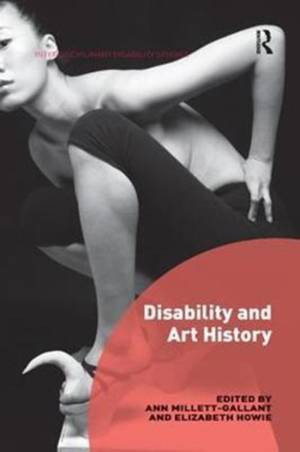
- Afhalen na 1 uur in een winkel met voorraad
- Gratis thuislevering in België vanaf € 30
- Ruim aanbod met 7 miljoen producten
- Afhalen na 1 uur in een winkel met voorraad
- Gratis thuislevering in België vanaf € 30
- Ruim aanbod met 7 miljoen producten
Disability and Art History
Omschrijving
This is the first book of its kind to feature interdisciplinary art history and disability studies scholarship. Art historians have traditionally written about images of figures with impairments and artworks by disabled artists, without integrating disability studies scholarship, while many disability studies scholars discuss works of art, but do not necessarily incorporate art historical research and methodology. The chapters in this volume emphasize a shift away from the medical model of disability that is often scrutinized in art history by considering the social model and representations of disabled figures from a range of styles and periods, mostly from the twentieth century. Topics addressed include visible versus invisible impairments; scientific, anthropological, and vernacular images of disability; and the theories and implications of looking/staring versus gazing. They also explore ways in which art responds to, envisions, and at times stereotypes and pathologizes disability. The insights offered in this book contextualize understanding of disability historically, as well as in terms of medicine, literature, and visual culture.
Specificaties
Betrokkenen
- Uitgeverij:
Inhoud
- Aantal bladzijden:
- 200
- Taal:
- Engels
- Reeks:
Eigenschappen
- Productcode (EAN):
- 9780815392132
- Verschijningsdatum:
- 22/11/2017
- Uitvoering:
- Paperback
- Formaat:
- Trade paperback (VS)
- Afmetingen:
- 156 mm x 233 mm
- Gewicht:
- 307 g

Alleen bij Standaard Boekhandel
Beoordelingen
We publiceren alleen reviews die voldoen aan de voorwaarden voor reviews. Bekijk onze voorwaarden voor reviews.










